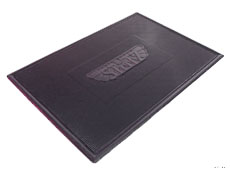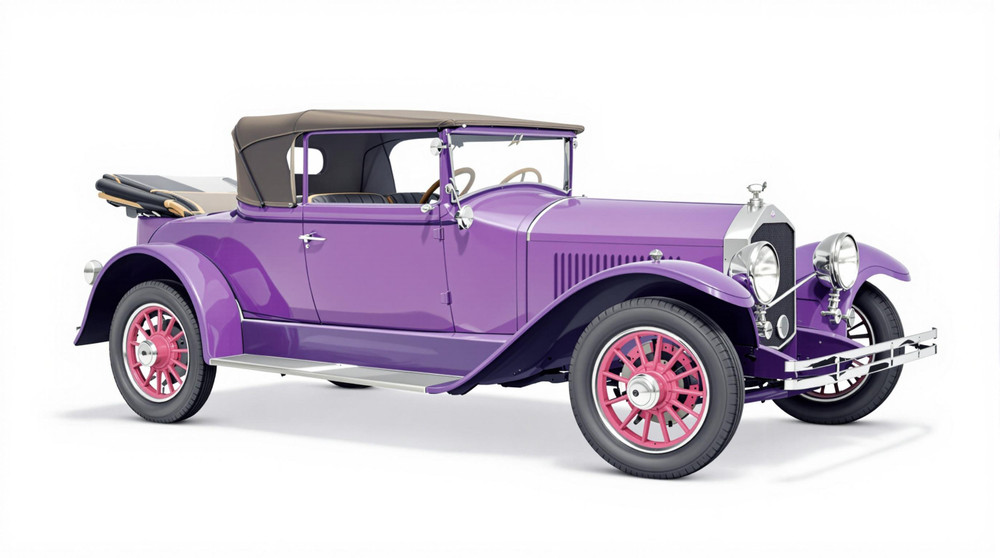Image of 1919 Stutz Series G, Note: These illustrations use artistic license and may differ from actual historical models.
Performance Metrics
Fundamental Metrics
Emotional Appeal
MMP Rating
| Engine Specifications | |
|---|---|
| Engine: | T-head inline 4-cylinder engine |
| Displacement: | 360 cubic inches |
| Horsepower: | Estimated 80-88 HP |
| Torque: | Not available |
| Compression Ratio: | Not available |
| Ignition System: | Magneto ignition system |
| Cooling System: | Water-cooled |
| Performance Specifications | |
| 0-60 Time: | Not available |
| 1/4 Mile Time: | Not available |
| Top Speed: | 70 mph |
| Transmission and Drive | |
| Drive Type: | Rear-wheel drive |
| Transmission Type: | 3-speed manual |
| Fuel and Efficiency | |
| Fuel System Type: | Carburetor |
| MPG: | Not available |
| Dimensions and Brakes | |
| Brakes: | Mechanical drum brakes |
| Wheelbase: | 130 inches |
| Weight: | Estimated 3,200 lbs |
Note: Specifications for classic cars are given to the best of our ability, considering the limited and variant data available.
Unveiling the Prestige of the 1919 Stutz Series G
Stepping into the annals of automotive excellence, the 1919 Stutz Series G stands as a testament to early 20th-century innovation and luxury. Born from the ambitious vision of Harry C. Stutz, this vehicle emerged from an era where the automobile began to symbolize not just mobility, but status and technological prowess. The Stutz Motor Company, established in Indianapolis in 1911, quickly gained acclaim for producing cars that blended speed with elegance. The Series G, in particular, captured the imagination of a post-World War I society eager for progress. A notable moment in its history was when the Stutz Bearcat, a relative of the Series G, became synonymous with raw power and speed, cementing the brand's legacy in automotive culture.
Design and Innovation
The 1919 Stutz Series G radiated sophistication with its exterior styling. Its long bonnet and classic open-top design were hallmarks of its era, while the bold radiator grille emblazoned with the iconic Stutz nameplate commanded attention on every thoroughfare. Inside, passengers were treated to a cabin that exuded craftsmanship, with materials that spoke of luxury and comfort uncommon in many vehicles of the time. Technologically, it boasted advancements such as a powerful overhead valve engine and an innovative transmission system that set it apart from competitors. Color options were limited by today's standards but often featured deep, rich hues that added to its grandeur. Of its various body styles, the roadster was particularly celebrated for its sporty appeal.
Historical Significance
The 1919 Stutz Series G carved its niche by offering an unparalleled blend of performance and luxury. It diverged from many contemporaries that prioritized practicality over prestige. This car's influence is evident in how it set a benchmark for American sports cars, combining reliability with racing pedigree—a philosophy that would echo through automotive design for decades.
Performance and Handling
In terms of performance, the Series G was no slouch; it delivered impressive top speeds for its time—capable of reaching up to 75 mph—a remarkable feat when most roads were still unpaved. Acceleration figures are harder to come by from this era but suffice it to say; it moved with purpose and verve. Handling was surprisingly adept given its solid axles and leaf springs; drivers often remarked on its stability and poise on challenging roads. Behind the wheel, one could hear the distinct roar of its engine—a sound that epitomized mechanical rawness and power.
Ownership Experience
Owning a 1919 Stutz Series G was a privilege reserved for a select few who could appreciate its dual role as a daily driver or weekend showpiece. Maintenance required mechanical know-how but was generally manageable due to the car's straightforward engineering. Reliability was one of Stutz's selling points, though parts are understandably scarcer today.
Fun Facts
This automotive marvel has seen its share of limelight with rare editions being sought after by collectors worldwide. While not known for breaking speed records like its Bearcat sibling, it held records in reliability and endurance runs. Criticisms were few but often pointed at its premium price point—making it inaccessible to the average buyer at the time.
Collector's Information
Today, a 1919 Stutz Series G can fetch a handsome sum at auction or private sale—often valued well into six figures depending on condition and provenance. Production numbers were limited; estimates suggest only several hundred were made. As such, they are rare finds with values appreciating over time as collectors vie to add this piece of automotive history to their portfolios.
Conclusion
The 1919 Stutz Series G is more than just an antique car; it is a rolling sculpture representing an era where automobiles began shaping modern society. Its legacy is etched in history books and collector garages alike—a true icon for enthusiasts and historians who appreciate the dawn of automotive luxury and performance.
1919 Stutz Series G Catalog of Parts
 1919 Stutz Series G Accessory Floor Mat - 12"X17"-AC 41Accessory Floor Mat - made of high quality black rubber with molded original emblem. Also designed to be sewn into new carpets. 12"X17", Each
1919 Stutz Series G Accessory Floor Mat - 12"X17"-AC 41Accessory Floor Mat - made of high quality black rubber with molded original emblem. Also designed to be sewn into new carpets. 12"X17", EachWhy Choose Metro?
For over 100 years, Metro Moulded Parts has been the pinnacle of quality in classic car restoration parts. Our commitment to precision and authenticity in every component ensures a perfect fit and an OEM-level appearance.
- Expert Craftsmanship & Quality: Each part is a testament to our dedication to reliability and perfection, crafted from original designs and thoroughly tested.
- Advanced Technology: We use cutting-edge techniques to create flawless, long-lasting parts that surpass others in performance.
- SuperSoft Sponge – The Ultimate Door Seal: Not only are our door seals 30% softer than competitors', but they're also guaranteed to never leak. They effectively reduce wind and road noise, enhancing your classic car's comfort and driving experience.
- Proudly American: Our parts are a product of American craftsmanship, made in the USA with a spirit of excellence and heritage.
- Unrivaled Warranty: We back our products with a 30-year industry-leading warranty, a testament to our confidence in their quality.
Join us in preserving the legacy of classic cars with parts that are crafted for perfection, not just made.

